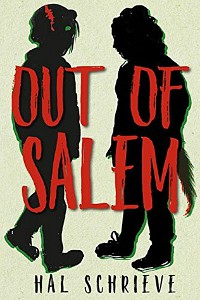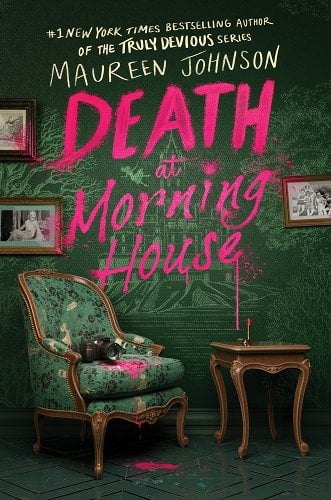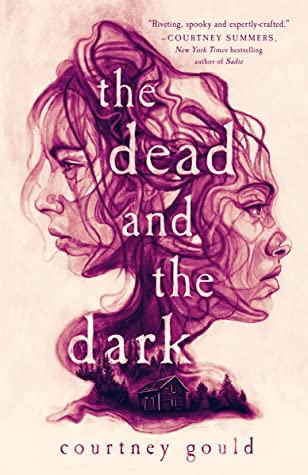The night I was born, the attending nurse turned to my mother with a weird expression on her face. She noted that I had long delicate fingernails, and already a head of black hair; that a trail of fine baby hairs ran down my spine. “In the old days, you know, they’d have said she was a werewolf.” she told my mother. Mom, exhausted, laughed it off. It became a family story to tell later on–born on Halloween night, and a werewolf to boot! “In the old days,” Mom would laugh, “they’d have drowned you.”
It didn’t become a bitter story until she disowned me for being queer. “Why can’t you just choose to be straight?” she said. “I did. Why do you feel like you have to stand out like this?” In the old days, they would have drowned me. Now I had to find a way to keep my head above the waves.
In Hal Schrieve’s YA novel Out of Salem, everyone is treading water with a secret to keep. High school freshman Z’s just found out that they’re nonbinary–just in time to get into a car wreck with their entire family from which only they emerged, battered and freshly undead. Their classmate Aysel is Muslim, in 1990’s rural Oregon where anything but Christianity is a sure way to be ostracized–and she’s a werewolf, unregistered, which could easily be a death sentence if she gets caught. Their friend Tommy is constantly being accused of being either gay or an actual fairy, and while neither of those things is true, it doesn’t matter to his abusers. Even seeming just a little bit out of the norm is enough to put a target on his back.
And things aren’t about to get any less complicated for any of them when a local doctor is found dead. The police say he was murdered by a werewolf, throwing the town into an uproar of vigilantism and abuse against the other which is easily recognizable in today’s political climate. Every metaphysical minority is living in fear. The teenagers don’t feel that they have any reliable adults to turn to, or that if they tried, they’d only endanger them, so they have to handle things on their own.
I’m writing this review very narrowly, because I feel like this book was just that good. I don’t want to spoil any part of it. It’s urban fantasy of just-a-minute-ago, the Nineties as they almost were, but it’s also YA for people who weren’t born yet in the year it takes place; it balances teenage passion neatly against the now-slightly-foreign world of our past, only slightly sideslipped into the fantastic. Before cell phones, before the panopticon of stoplight cameras, but in a world that was not less dangerous to people who stand out. There’s a constant sense of being just a moment ahead of being caught, of barely outrunning the real monsters, and one can only keep running at that speed for so long before one’s energy gives out and something has to break.
I appreciated that the characters aren’t without teenage flaws. They’re all going through real, heartrending troubles in their daily lives, but also they make some choices out of inexperience that you’d believe a fourteen-year-old might make if they felt their back was against the wall. They reach for what small happiness they can find, they trust or mistrust, and none of it feels stilted or contrived. It all just feels like survival.
I was taken a bit aback at the first use of the word “transsexual,” as it’s not a term I’ve seen in sympathetic literature for a long time now. But it was the word used in the Nineties, and so it is the term used in the book. But of course the author isn’t unaware of that:
“Z, Aysel told me you were calling yourself like, genderqueer or something these days, right?” Z was a little taken aback by the conversation. “I guess,” they said. “Yeah.” They tightened their hold on Elaine’s shoulders. “The words change a lot,” Elaine said. “Doesn’t really matter.”
What matters more than the terminology, quoth the story, is the soul behind it, and these kids are figuring things out one mistake and injury and accidental insult at a time.
I was consistently balancing between amused at the bluntness and impressed at the deftness when it came to the use of metaphor in the story. Z’s a zombie, and they’re trans; more than once I’ve heard a trans friend tell me that their friends and family keep treating them like they’d died when they came out, and some other thing was shambling around in their skin. Aysel’s lycanthropy is treated a lot like I’ve experienced queerness being handled by the religious right, as something monstrous, something that needs to be caged or electrically shocked out of a person before they can be allowed in society. It was all on-the-nose enough that I got a bit of a tension ache between my shoulderblades. I so badly wanted the protagonists to find a way to freedom and safety, but what does that look like when the entire world is arrayed against you? And which of those needs do you choose, if everyone is telling you that you have to choose one or the other?
Even while all of society is insisting that the protagonists must be like them or die, even while most of the characters don’t see any way out but to run, the narrative suggests quietly that there’s another option. That there’s another demand for the characters to make. That building a community can build safety; that refusing to back down can protect someone else; that maybe you can transform the world into something new, something that has room for you in it, if only you are brave.
Final rating, a very rare-for-me five out of five stars.
Content Warning: Discussion of graphic injury to animated dead body (painless, but explicit); homophobia (from the bullies); physical abuse (same); mild mention of anti-Muslim bigotry; fat-shaming (bullies, again, these guys are *winners*), electroshock aversion “therapy,” racism, police violence (repeatedly), off-screen but explicit police murder of civilians.



